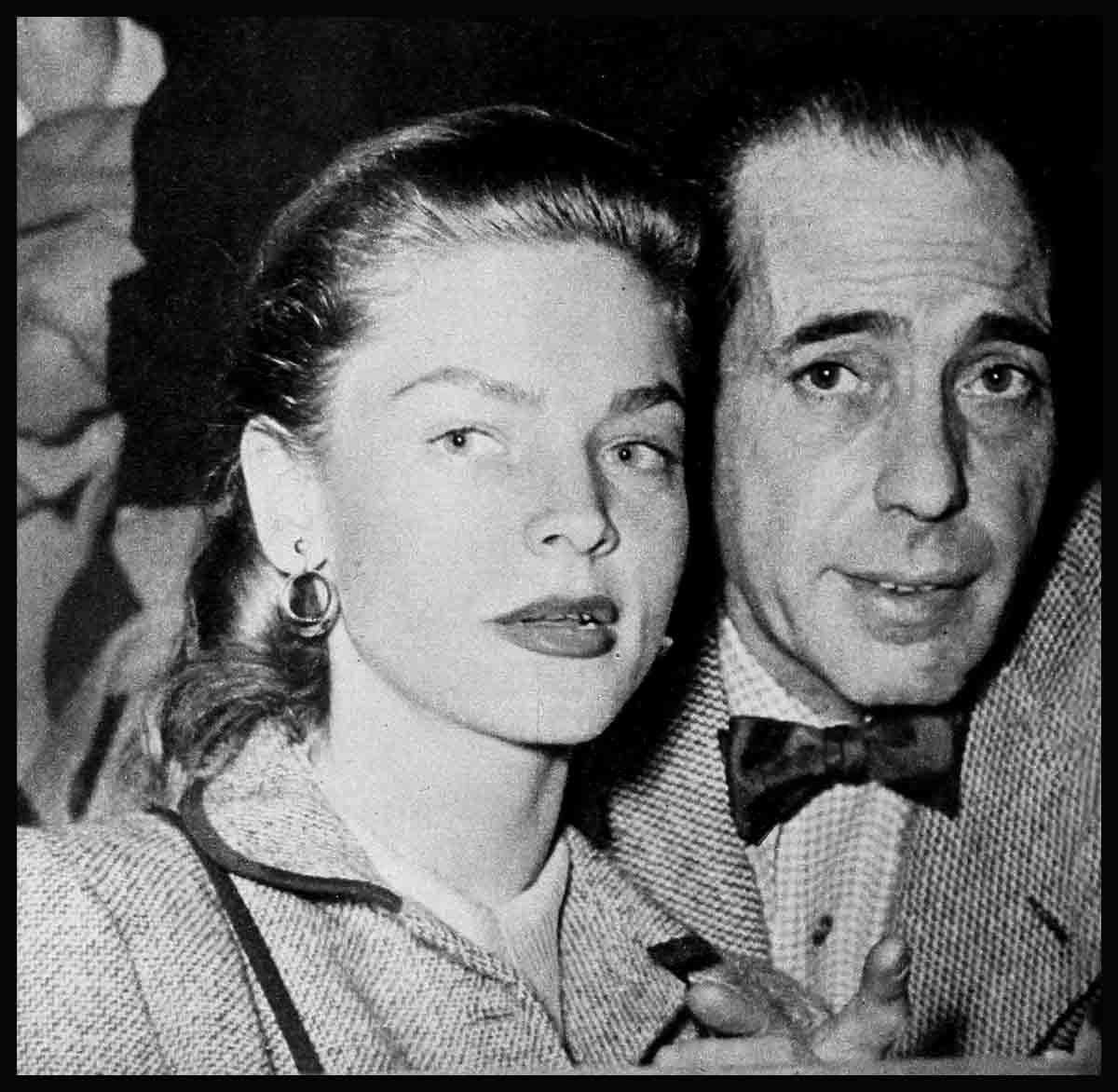
Their Greatest Off-Screen Performances
Some of the best performances in Hollywood take place when no camera is grinding. They’re unrehearsed. There’s only one “take.” And the audience consists solely of those fortunate enough to be around at the moment. Sometimes, put not always, the stars, themselves, do not realize. what a histrionic performance they are giving.
Take Betsy Drake. Betsy always looks so sweet and placid. And I guess she is sweet. But she was anything but placid the time she told George Jessel off, when they were planning a radio interview. Naturally, George wanted the conversation to include a little talk about Cary Grant. “But, it’s so silly,” Betsy told him. “Look,” said Georgie, “I’ve been in show business for twenty-five years and I think you can accept my judgment.” “I know you have,” Betsy replied, with a very disarming smile, “but I’ve never found your entertainment very entertaining.”
Mr. Jessel, who has always found the proper retort for any occasion, was stopped cold.
Humphrey Bogart was stopped cold, too, by Barbara Stanwyck. Bogie was playing an American artist in England. While he was making wardrobe tests, Barbara dashed onto the set with a velveteen suit and a tam o’shanter. “You’re to wear these for the picture,” she told him. “Aw gee, shucks,” Bogart whispered through his teeth. “You know I’m not the Little Lord Fauntleroy type.” “But you’re playing an artist,” said Barbara with a straight face. Then Bogart really got mad. His eyes flashed and his cheeks turned into a flaming red. Quite a performance, until he caught on.
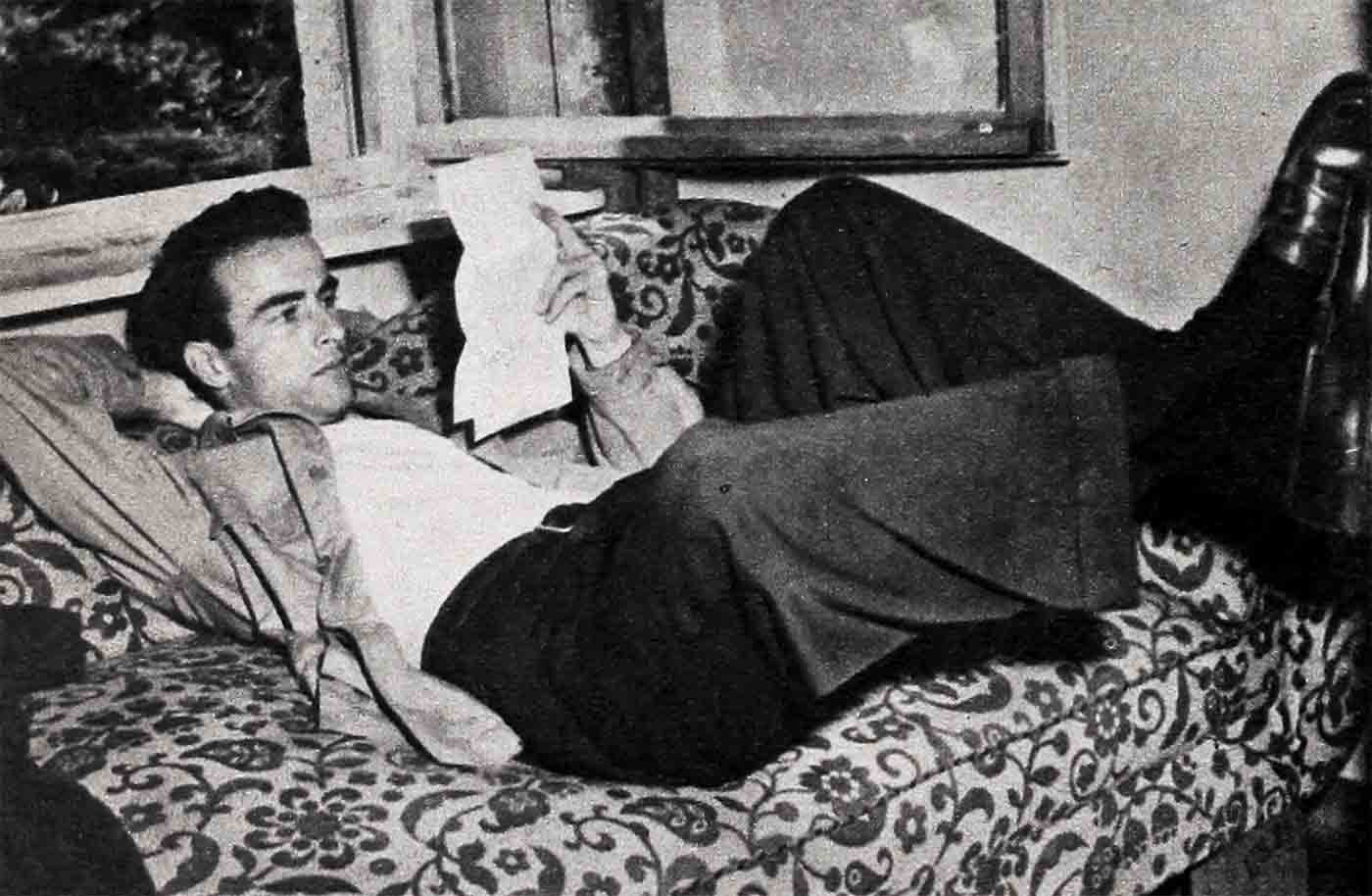
Monty Clift’s getting quite a reputation as an off-screen performer.
The best he’s ever given, I think, took place at the Hollywood premiere of “The Heiress.” He was wearing a dress suit probably for the first time in his life. It didn’t fit any better than rented suits usually do. And it was quite a show to watch Monty smiling into Elizabeth Taylor’s pretty blue eyes, for the photographers, and at the same time, trying to avoid strangulation from his tight collar!
I wonder, like everyone else, how long Monty will continue to be such a quiet guy. For I’m reminded of another former stage actor, Kirk Douglas, who was so quiet you hardly knew he was around. He sort of entered a room with a whisper. Now, it’s with a bang. Mention a girl’s name to him and his eyes light up like neon lights and his nostrils positively dilate. But thank goodness, he is still a gentleman. He doesn’t kiss and tell. He doesn’t have to. The girls do all the talking. Evelyn Keyes, for instance, admitted recently to me, “It’s getting serious. But Kirk is still married and so am I.” Trace the origin of this new Kirk Douglas, and you’ll find it all began with “Champion.” Kirk is a sure bet to win honors this year. His performance in “Champion” was terrific, but not more so than his amazing private life histrionics ever since.
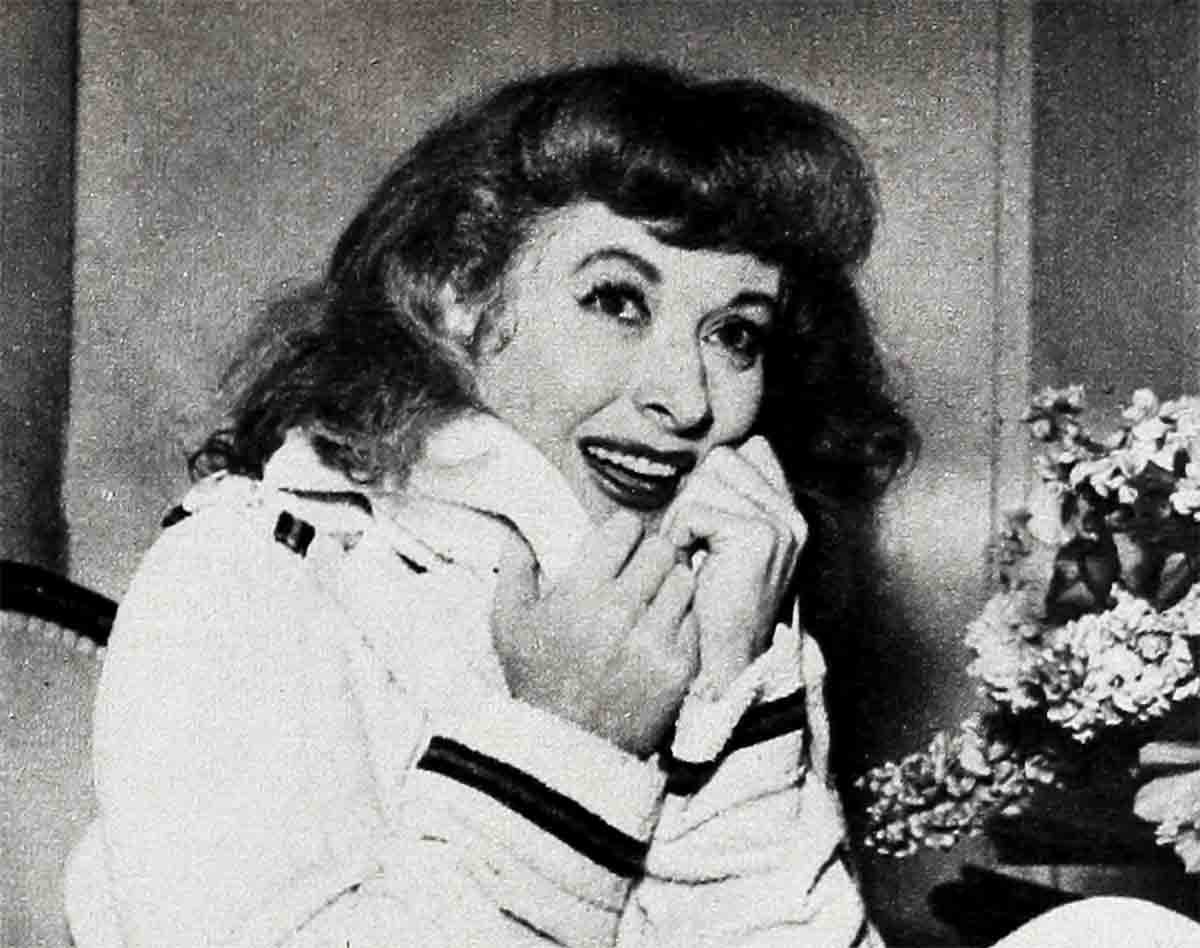
The high peak of Kirk’s private life acting took place high up in Hampshire House, shortly after his sudden acclaim. There was no sound track. Kirk just stood by the wide open window looking down at Central Park where he had once made the vow, “That’s the hotel I’ll stay at when I’m rich and famous.” He was crying when he turned back into the room.
Joan Crawford wept recently, too, with no camera around, at a luncheon where she was accoladed as the Mother of the Year. When the time came for me to bring Joan to the microphone to make her speech of thanks, Hollywood’s glamour queen was speechless. Choking back her sobs, she managed to murmur, “Thank you.” Then she returned tearfully to her seat. Now if this had been a movie, Joan would have had to read a lot of lofty lines about Motherhood. Well, I’m a mother myself and I know that when we do talk publicly about our kids, we usually want to cry.
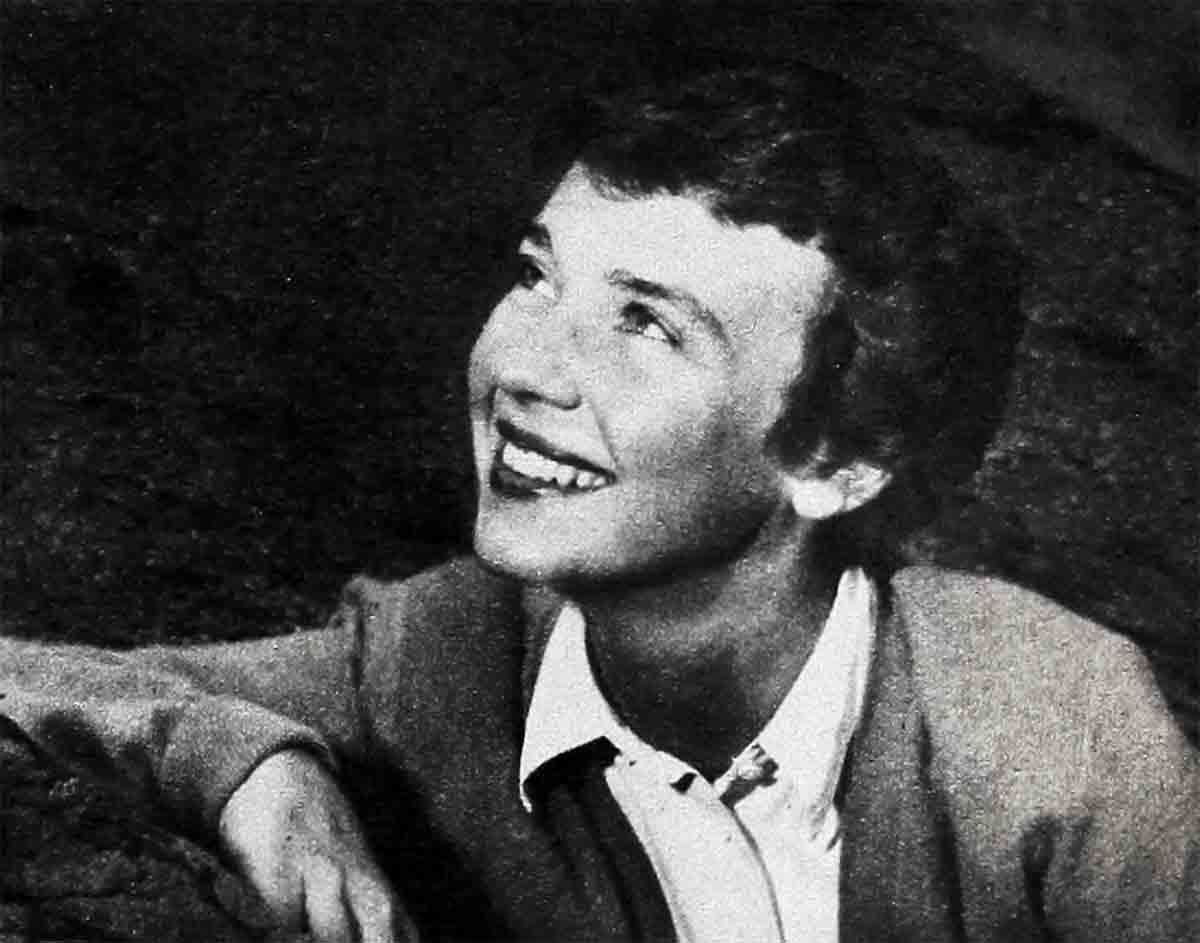
Speaking of children reminds me of Larry Parks’s best off-screen performance. At the time when rumors were flying that Betty Garrett was expecting a baby, I called the Parks home. “Is it true about a baby?” I asked Larry. “Baby, what baby?” Larry replied with a gentle smile in his voice that Jolson could never duplicate even on his knees. “Your baby,” said I, rushing the next sentence. “You and Betty are rumored to be expecting a baby.” “Not true,” said Larry regretfully and charmingly. “Of course,” he added, “Betty and I want a baby more’ than anything in the world, but when we expect one, we’ll tell the whole world. There will be no need to ask.”
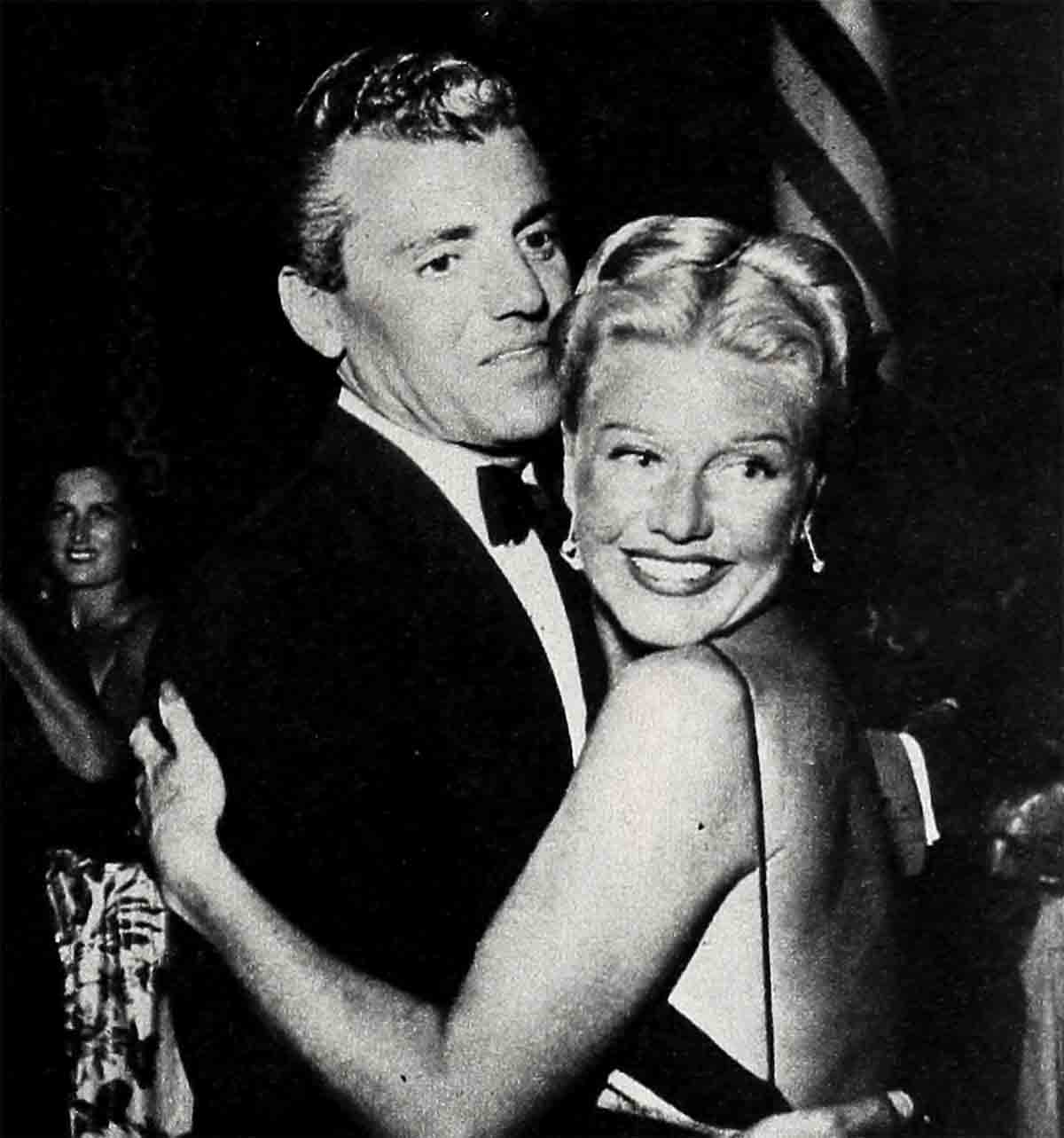
I didn’t realize how great Larry’s performance was, until three weeks later, when Betty’s studio announced that she couldn’t co-star with Robert Walker in “The Skipper Surprised His Wife,” because Betty expected a little skipper of her own in five months.
June Allyson is a fine actress. This year, she’s co-star of “The Stratton Story” which wins the Photoplay Gold Medal as the most popular picture of the year. And she’s the actress, according to the national poll Audience Research Ine. conducts for Photoplay, who enjoys the greatest increase in popularity! I’d like to give June my medal, made of sugar and spice for the acting she did on the sidelines when she co-starred with husband Dick Powell in “The Reformer and the Redhead.”
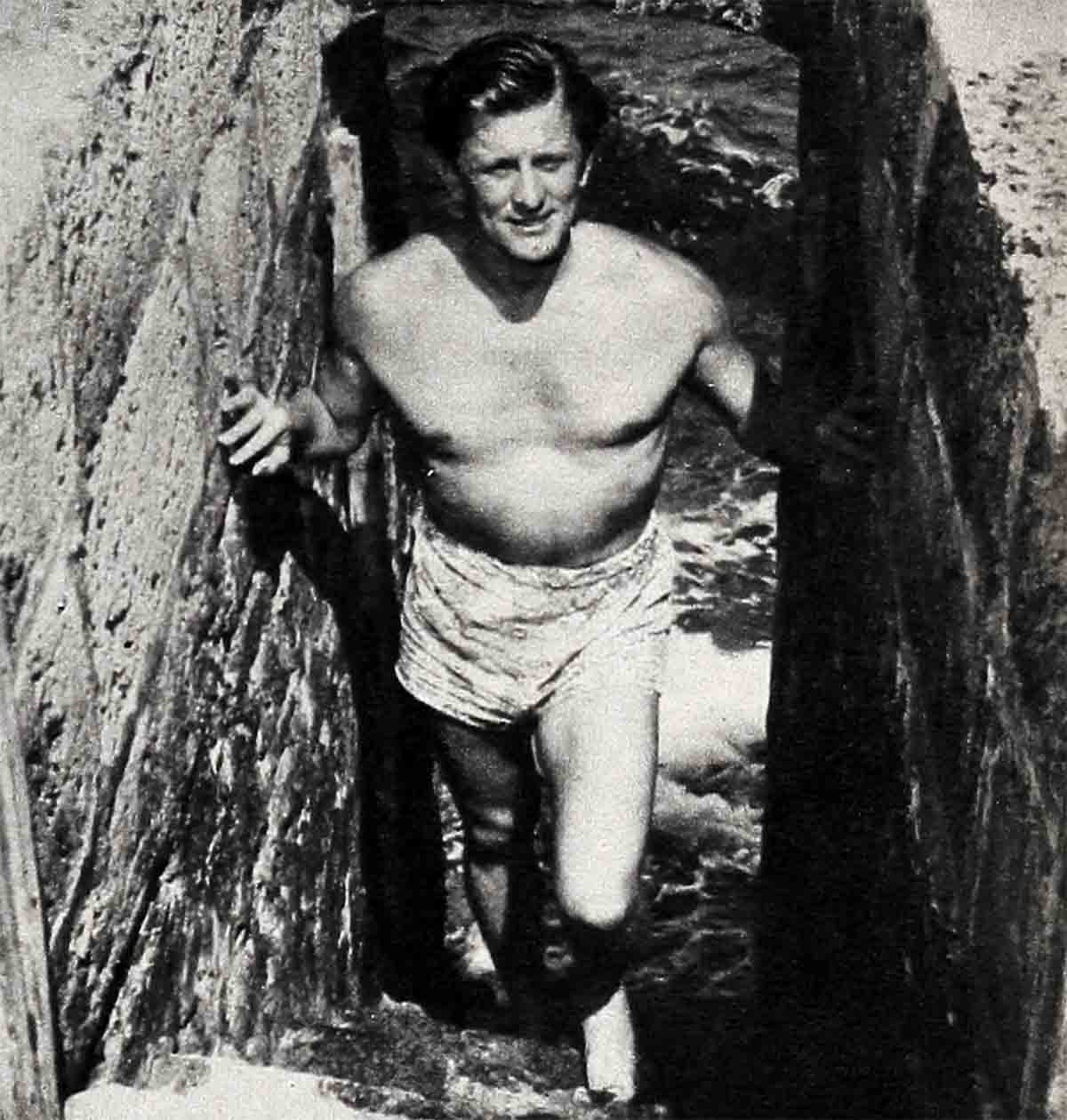
Most stars, when they are not in a scene, rest in their dressing room. Not June, when Dick was working. “Isn’t he handsome!” she ecstasied one afternoon when Dick was doing a scene with a camel. She meant Dick, of course. Her sentiment was sincere, ditto the warmth and passion that permeated her voice and body. But Dick would be the first to pooh-pooh his looks, especially with the butch hair-cut he sported at the time. He would be the first also, to tell June, “That was a terrific performance you gave.”
One evening, I’m going to take a camera to wherever Ginger Rogers is dancing with Greg Bautzer. For it’s a great shame to waste Ginger’s wonderful performance on the handful of couples who are merely extras in the Big Scene. I’ll do my very best to describe it for you. Close your eyes, Ginger’s are closed, too, and imagine her in a low, strapless gown, crushed close to Greg’s chest. One lily-white hand lies gently in his. The other gently massages his back. Her blonde head, closed eyes and all, nestles cosily on Greg’s wide shoulder. The music stops. The sequence abruptly ends. Ginger flashes a wide-awake smile for the photographers.
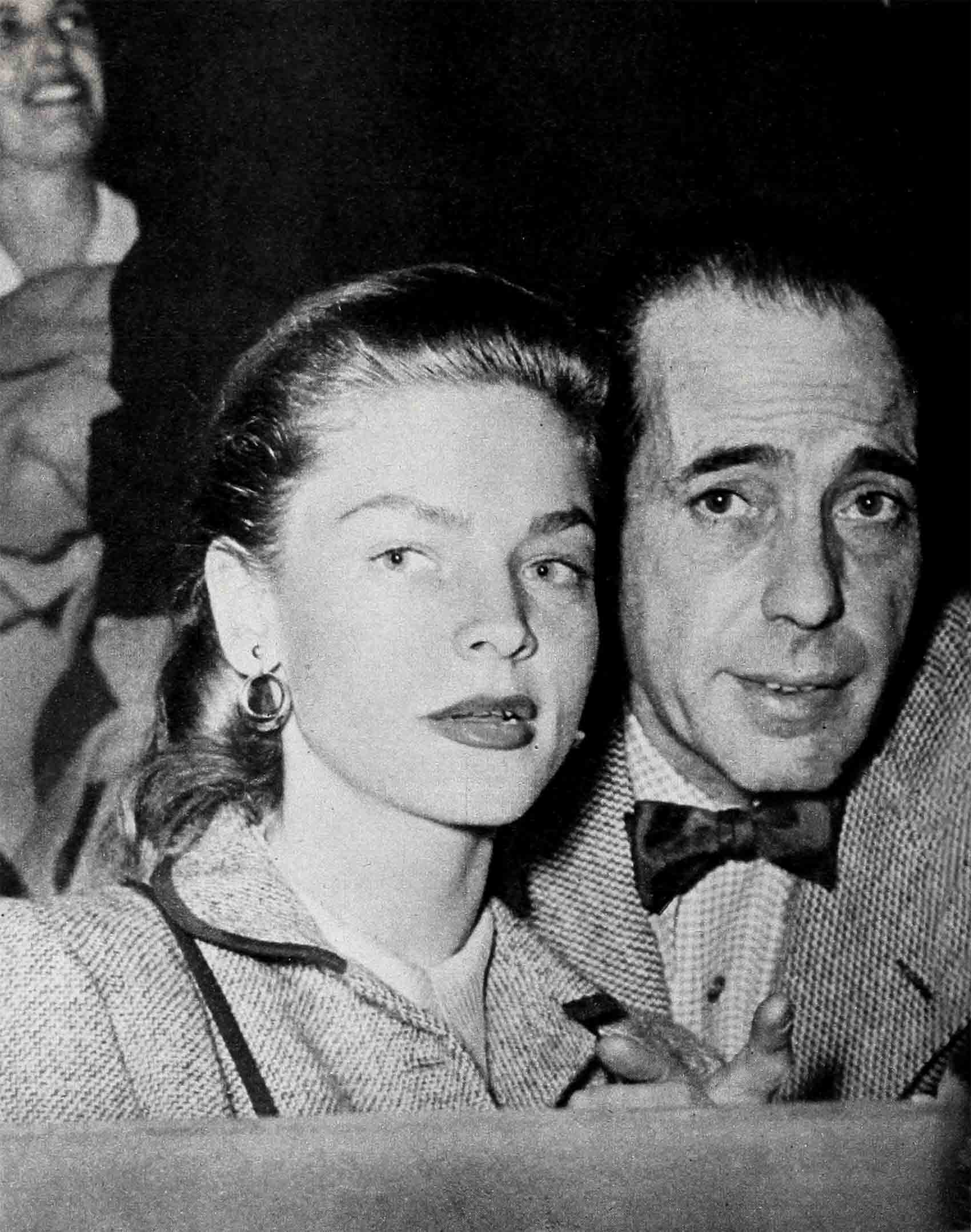
Take Errol Flynn, that is if you can get him away from Princess Ghika. When Errol flew back to Hollywood, last year, for added scenes in “That Forsyte Woman,” he brought a slight, foreign-speaking young lady on the set and introduced her as Princess Irene Ghika of Rumania. Later, Errol said it was just a joke, the girl was not the Princess, just an impersonator. Everyone, including Greer Garson and the Princess laughed in a well-modulated key. But, be sure Errol and his lady love laughed louder, later. Because, it seems Irene Ghika was here at the time, and, with Errol’s cooperation, impersonated herself. Errol should save such acting for the screen.
Bette Davis already has won two Academy Awards and if they could have photographed her off-screen tantrums while she was making “Beyond the Forest” she might have won a special Oscar. Bette ran the bad-girl gamut from T for Temper to B for Bad Temper. One day, she tore an expensive scarf to tiny threads. Later, her press agent explained that Bette’s worse-than-usual behavior was because she wanted out from her $600,000 contract. There must have been an easier, if less spectacular way, like going to the boss and asking, “I’d like my freedom, please.” Now you can see why everyone in Hollywood sat down to laugh when Bette’s husband, William Grant Sherry, cried to Bette and the world that he had such a bad temper. Come to think of it, that was a pretty good performance, too.
Greer Garson doesn’t do too badly in the off-screen emoting department. One time, she said to me, “I wish you’d call me before printing anything about me.” “Will you tell me the truth if I do?” I asked. “No,” said Greer, smiling very charmingly. Right up to the altar, Greer was still smiling charmingly and saying, “Of course I’m not getting married to anyone.”
What a pity these great performances played to such small audiences.
THE END
—BY SHEILAH GRAHAM
It is a quote. PHOTOPLAY MAGAZINE MARCH 1950


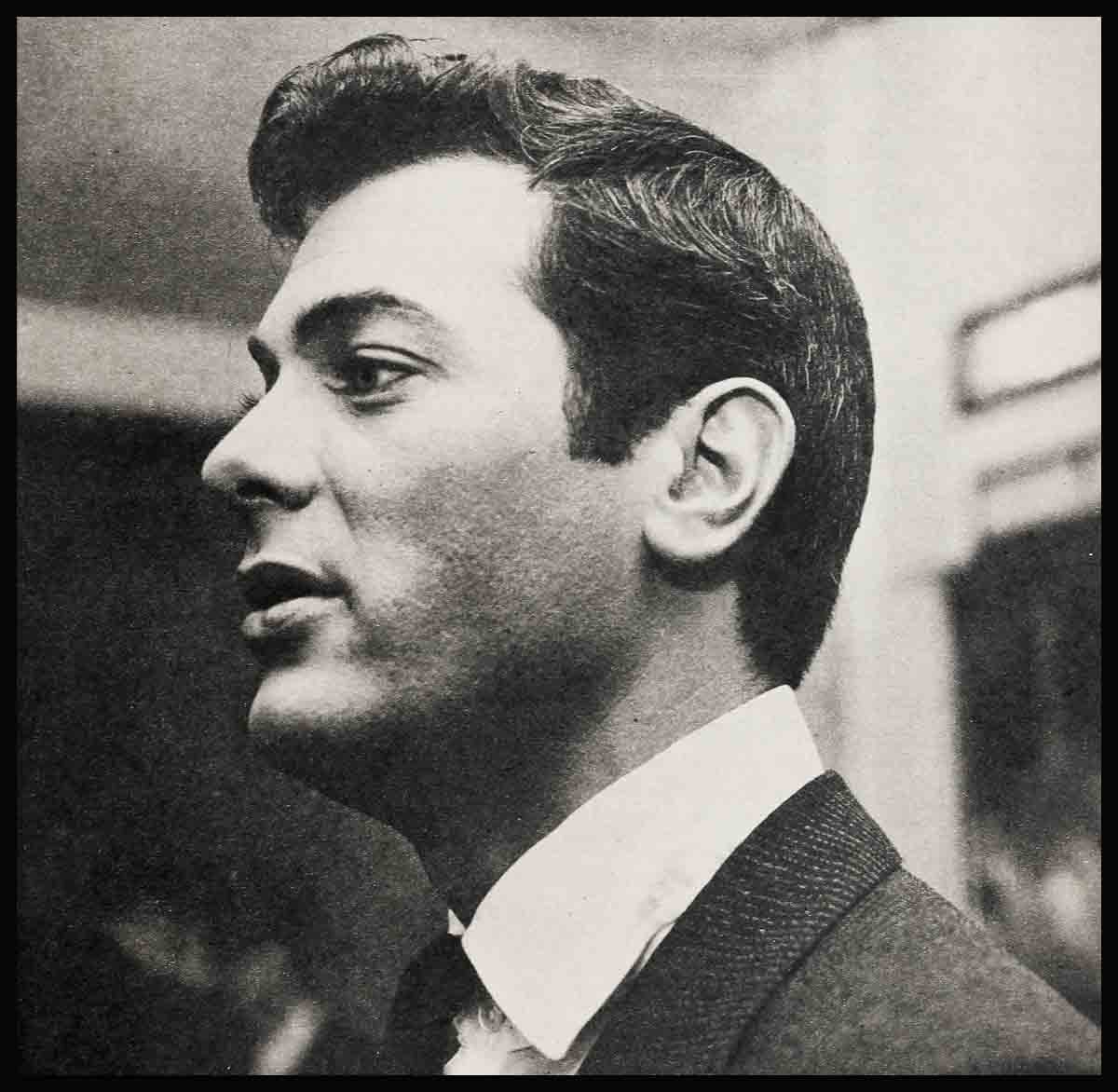

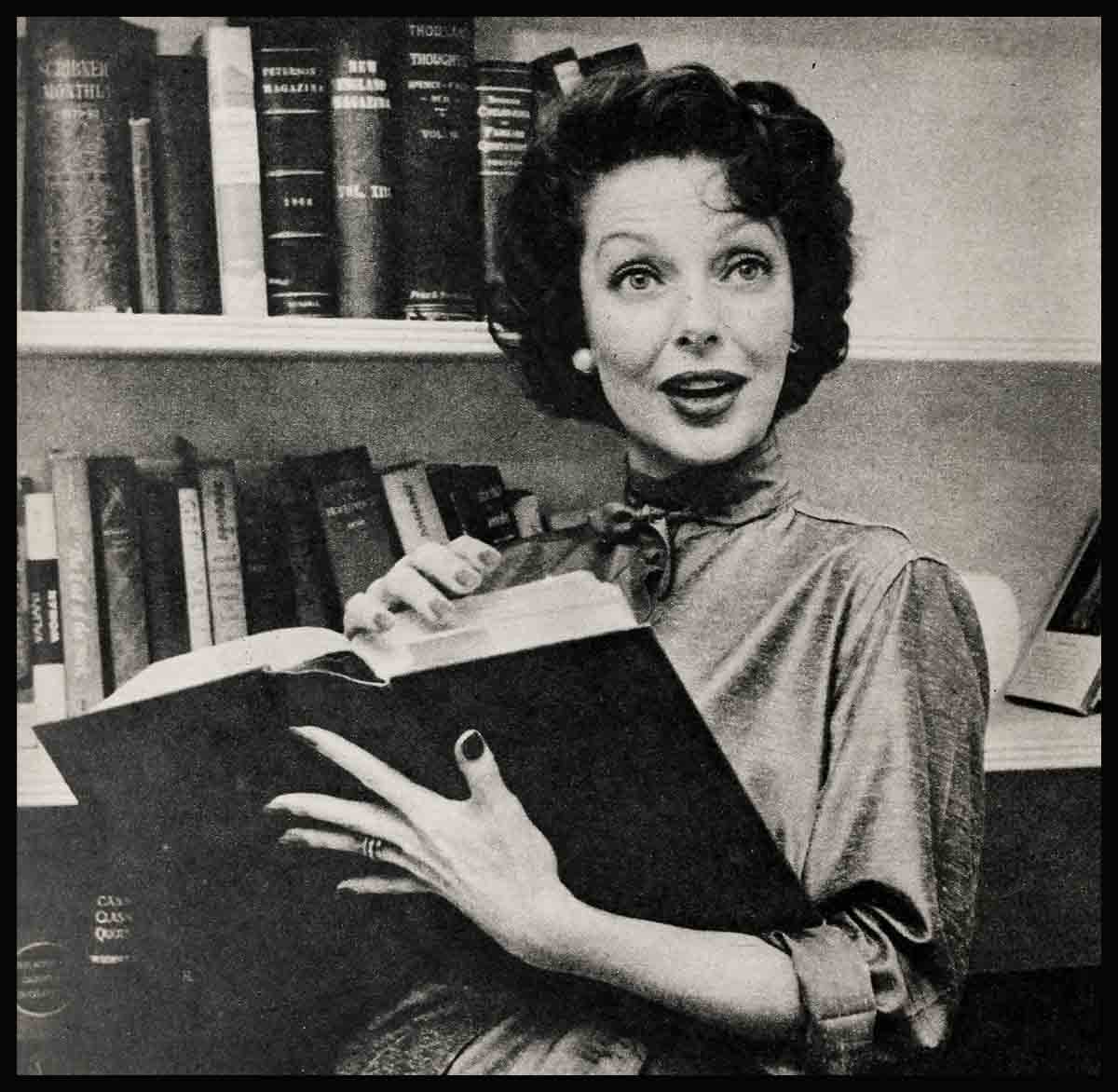
No Comments